England's first solid concrete block patent was granted way back in 1832, making block paving one of the most popular choices for driveways, patios, courtyards, pavements, town centres, and road surfacing projects in Britain.
Resin-bound driveways, on the other hand, are a much newer innovation, introduced to the UK market in the early 1990s. Their rise in popularity has been rapid, thanks to their seamless finish, fast installation, and low maintenance appeal.
In this post, we'll see which is the cheapest of these two popular options, not just the upfront costs, but also long-term.
What is a block paving driveway?
Block paving is a traditional surfacing method that involves laying individual bricks or blocks, commonly made from concrete or clay, and installed over a prepared sub-base. These blocks are usually arranged in specific patterns and then secured with kiln-dried sand brushed between the joints. The result is a stable and decorative surface that offers plenty of design flexibility.
However, block paving can be vulnerable to weed growth between the joints, movement over time, and issues related to water drainage if not properly installed. It’s a solid choice, but one that does require a fair amount of long-term upkeep and skill to install.
Average cost of a block paving driveway
The typical cost of a block paving driveway in the UK falls between £70 and £100 per m². This price can vary depending on the type of blocks used, the intricacy of the design, the depth of excavation required, and the condition of the existing surface. Premium finishes or natural stone options can drive the cost up to £120+ per m².
Block paving ongoing maintenance costs to consider
Maintaining a block paving driveway can be labour-intensive and costly over time. You’ll need to:
- Resand the joints regularly to maintain structural integrity
- Remove weeds that grow between the blocks
- Power wash the surface to remove algae, moss, and dirt
- Reapply sealants every couple of years to retain colour and protection
- Repair or re-lay blocks that shift, settle, or crack
These maintenance costs can add up significantly; you can expect to spend £100-£300 every 1-2 years to keep it in good condition.
What is a resin-bound driveway?
A resin-bound driveway is made by mixing natural aggregates with a UV-stable resin and then spreading this mixture across a prepared surface. It creates a smooth, seamless, and highly durable finish that’s permeable, meaning water drains through the surface rather than pooling.
Resin-bound surfacing is SUDS compliant, resistant to weeds, and offers a sleek, modern aesthetic. It’s perfect for driveways, patios, and pathways and is available in a wide variety of colour and texture combinations.
Average cost of a resin-bound driveway
Resin-bound driveways generally cost between £80 and £140 per m². This price range may seem quite vague, this is because there are two types of resin-bound installation, overlay and a full dig out.
The beauty of a resin-bound driveway is the lack of long-term maintenance needed, which makes them more affordable than block paving options. The final cost will always depend on factors such as the size of the area, the type of aggregate selected, and any required groundworks.
Ongoing maintenance costs of resin-bound driveways
Unlike block paving, resin-bound surfaces are extremely low maintenance. There are no open joints, so no weeds to worry about, and thanks to the UV-stable resin, colour fading is minimal.
Typical upkeep involves:
- Light sweeping to remove debris
- Occasional low-pressure washing
- Very little to no chemical treatments or resealing required
In most cases, annual maintenance costs are negligible, often under £50 per year, making resin one of the most cost-effective driveway options over the long term.
What’s more expensive, resin or block paving?
Thanks to advances in surfacing material development in recent years, Resin Bound and Resin Bonded surfaces have become the go-to option for driveway installers, housing developers, landscaping companies, architects, and homeowners. This is largely because block paving prices can vary dramatically, whilst resin provides much better consistency.
Overall, resin surfaces work out cheaper in the long run too, as they're virtually maintenance-free in comparison to high-maintenance block paving that needs regular weeding and power washing to keep it looking at its very best.
Here’s a quick breakdown:
- Block paving: £70-£110+ per m² (plus regular maintenance)
- Resin-bound: £80-£140 per m² (with minimal ongoing upkeep)
When you also consider the ongoing maintenance that block paving requires, re-sanding, resealing, weeding, and power washing, the long-term costs of block paving easily surpass those of resin.
So, which is better, block paving or resin?
Resin-bound surfacing is not only more cost-effective than block paving, but also faster to install, lower in maintenance, and superior in both drainage and durability.
Here are four more compelling reasons to choose resin over block paving:
1. A resin driveway is easier and quicker to install
On average, block paving takes around 5-7 working days to install, whereas a resin driveway can be ready to use in as little as 24 hours of it being laid. So, you could install 5 resin driveways in the same time it takes to install one paved driveway!
This means labour costs are generally lower too.

2. UV resistant driveway materials with a wider colour spectrum
Although block paving is often chosen for its wide range of design possibilities, it requires at least 2 coats of brick paving sealant applied to protect it from UV colour fading - otherwise, loss of colour can occur in as little as 5 years. Furthermore, UV sealant for block paving needs to be reapplied every 2 years to adequately retain its colour.
UV colour stable resin eliminates all of these issues, whilst providing homeowners with a much wider choice of resin colours to create a new driveway, patio, pathway, etc that's as unique as they are. Combined with our superior, you can put your absolute trust in our UV stabilised resin to look its very best for years to come.
3. SUDS compliant surfaces
Although permeable block paving is available, troublesome drainage issues can occur if block paving hasn't been laid correctly or joints get blocked by detritus, which can lead to puddles on the surface.
If you want to avoid this, SUDS compliant resin bound surfacing is the solution. Short for ‘Sustainable Urban Drainage System', surfaces that comply with SuDs standards are absorbent and allow water to drain freely through the surface to direct it away into a suitable filtration system.
At this point, you are probably asking if planning permission is required for resin-bound surfacing. The answer is no. Resin-bound surfacing is seen as a benefit to a property, it helps protect from flood risks and complements drainage, meaning it's an easy way to add value to your house without requiring planning permission.
For this reason, resin-bound surfacing products tick all the boxes for those seeking environmentally friendly 'eco paving' and sustainable drainage systems that last.
4. Best anti slip surface
Block paving can become incredibly slippery when wet, especially if moss has started to grow across it. Resin-bound gravel provides outstanding anti-slip qualities, so protecting your family from dangerous slips at home is easy with our ResinBound UVR Pro solution as it delivers slip resistance well above current requirements.
Considering the latest work safety statistics show that 37% of all reported workplace injuries were as a result of a slip, trip or fall, with 28% of all fatalities in the workplace being caused by a slip, trip or fall, it's not hard to see why the popularity of resin bound surfaces is steadily increasing in a variety of workplaces as one of the safest surfacing options around. Learn more: Resin Bound Floor Slip Resistance Test
Detail any further benefits, such as less weed growth
Resin driveway vs block paving
| / | Resin | Block paving |
| Lifetime colour lock guarantee | ✓ | ✗ |
| Slip resistance | ✓ | ✗ |
| SUDS compliant | ✓ | ✗ |
| UV resistance | ✓ | ✗ |
| Weed resistant | ✓ | ✗ |
| Frost resistant | ✓ | ✗ |
| Low maintenance | ✓ | ✗ |
| Quick installation | ✓ | ✗ |
So, is resin cheaper than block paving?
When comparing like for like, a resin-bound driveway is typically cheaper than block paving. While the initial material and installation costs can appear fairly close or slightly more expensive, resin generally ranges from £80-£140 per m², and block paving from £70-£110+ per m². The difference becomes more noticeable when you factor in long-term maintenance.
Block paving often requires re-sanding, resealing, regular weeding, and power washing, with upkeep costs adding up over time. Resin-bound surfaces, on the other hand, are virtually maintenance-free, saving homeowners time and money year after year.
In short, while resin might not always seem drastically cheaper upfront, you need to remember that it isn’t a short-term investment. Resin-bound driveways can last 25+ years, making it the more economical choice over the lifetime of the surface. This is particularly true for those looking for a low-maintenance, long-lasting, and visually striking finish.
In summary
When choosing a resin-bound surface, the quality of the materials used plays a significant role in the appearance and longevity of the final result. Factors like UV stability, aggregate size, and permeability can all affect performance over time, so it's worth doing some research before making a decision.
Choose a reputable supplier/installer
There are a number of reputable suppliers and installers across the UK offering resin systems in a variety of colours and finishes. These typically include a mix of natural or decorative aggregates and a specialist resin binder designed for external surfacing.
For homeowners who prefer support with installation, some suppliers also work with or recommend trusted contractors. Tools like online visualisers can also be helpful during the planning process, allowing you to explore design possibilities before committing.
As always, it's a good idea to compare quotes, check reviews, and ensure the products and services you're considering meet current British Standards for resin-bound surfacing.
At Resin Mill, we supply professional-grade resin surfacing materials that meet industry standards for strength, permeability, and UV stability.
If you'd like a no-obligation quote or want to speak with an expert about your project, you can reach the Moli team directly at 0300 303 0048.

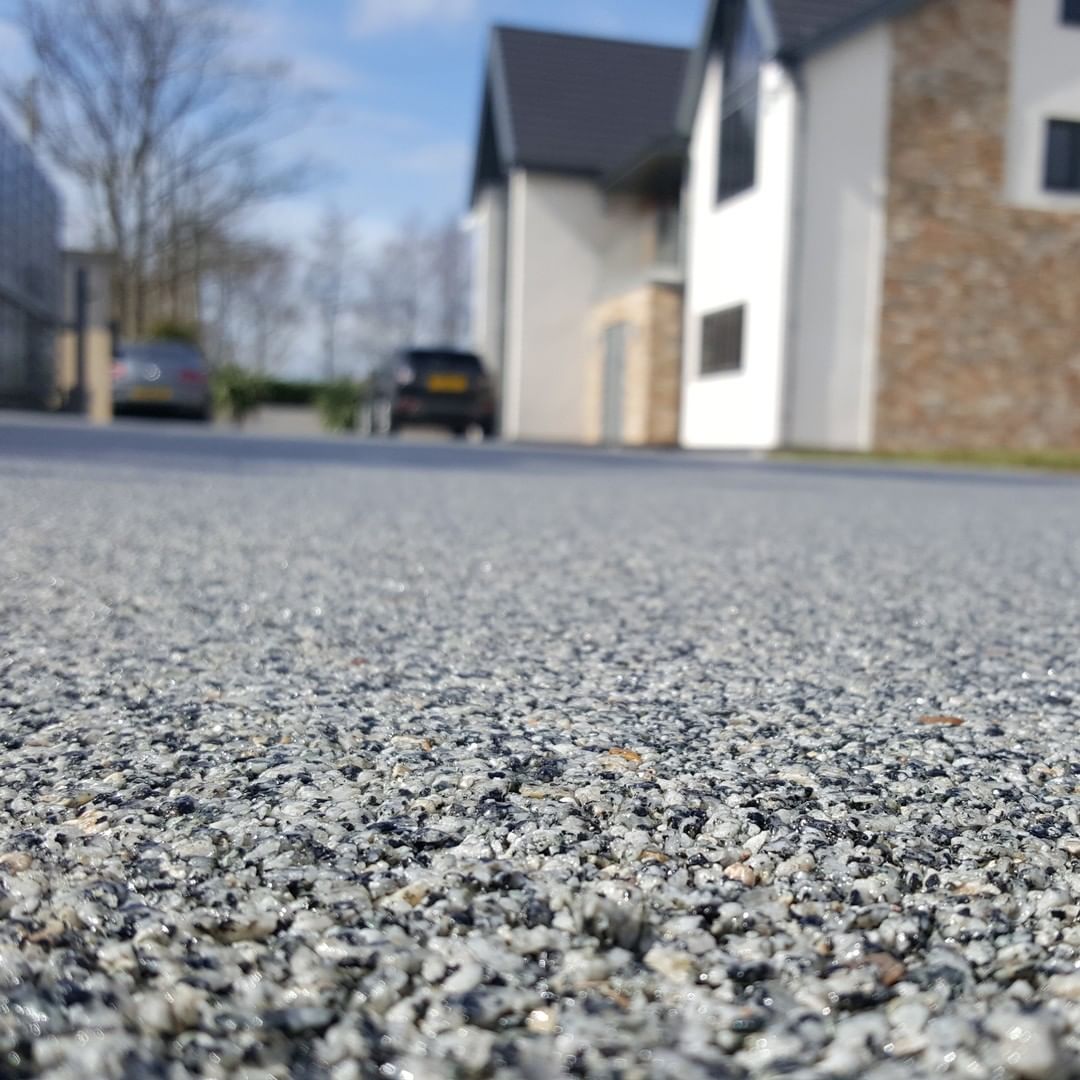
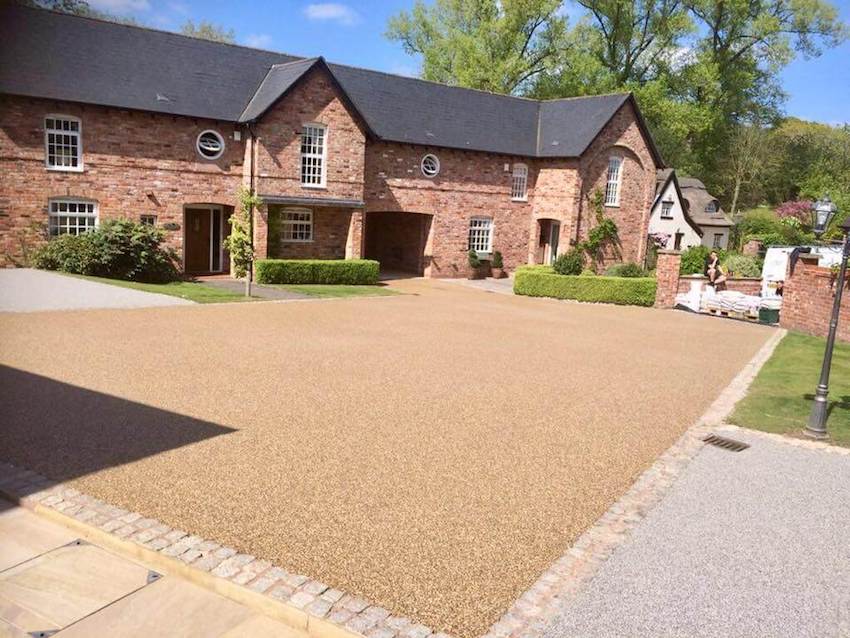
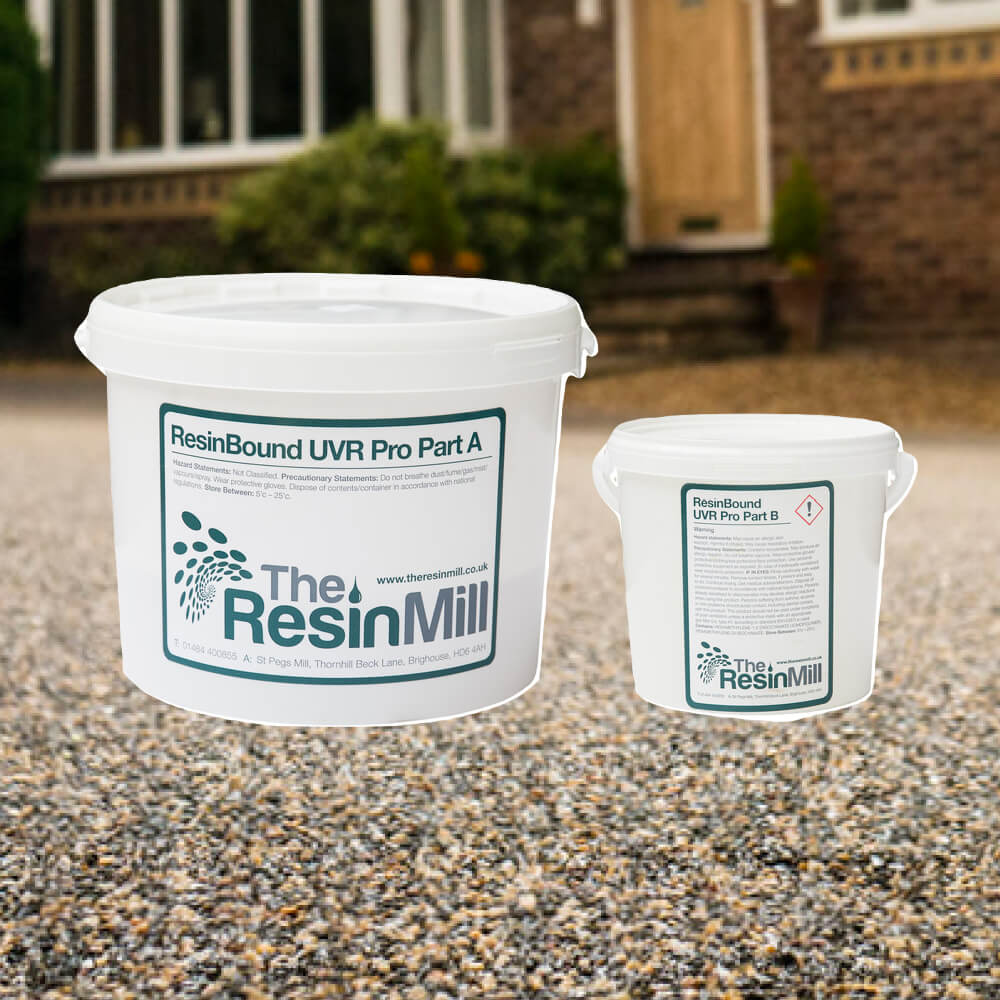

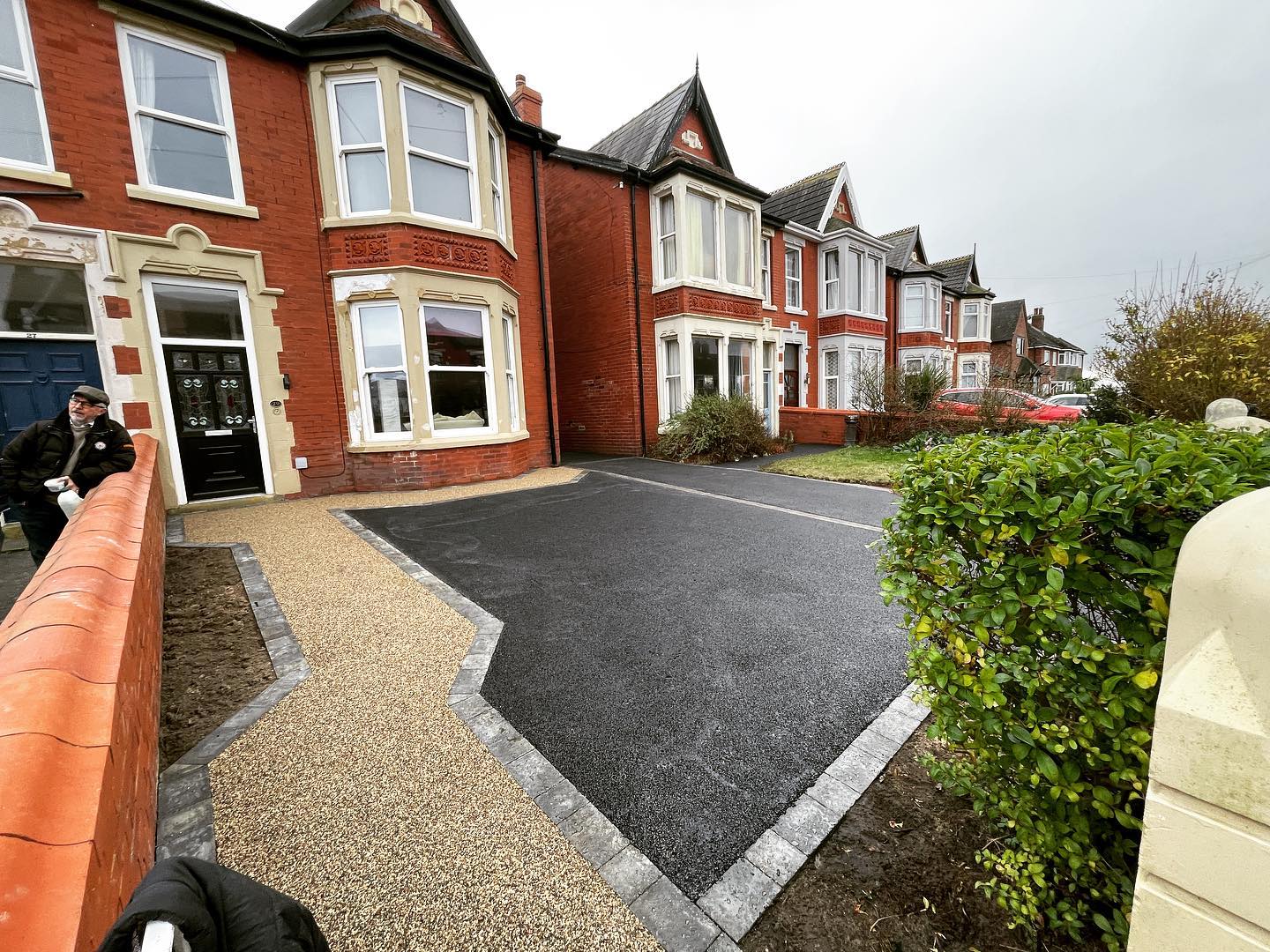


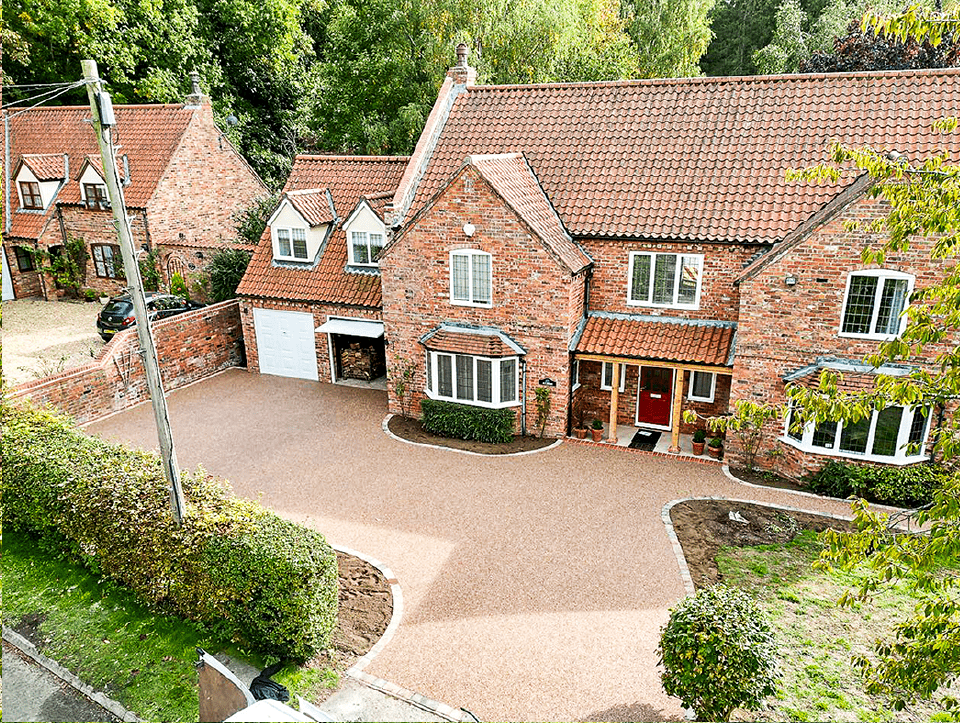
Leave a comment
This site is protected by hCaptcha and the hCaptcha Privacy Policy and Terms of Service apply.